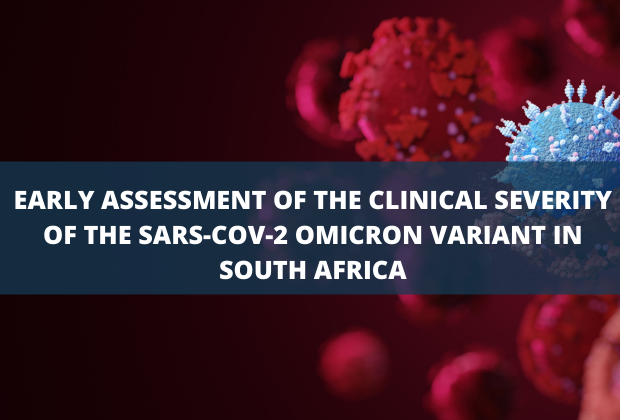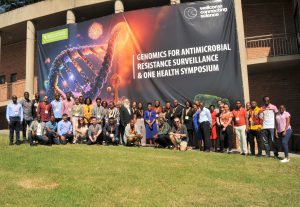Since the introduction of severe acute respiratory syndrome coronavirus-2 (SARS-CoV-2) in March 2020, South Africa has experienced three epidemic waves with the Beta and Delta variants of concern (VOCs) dominating the second and third waves, respectively. On 24 November 2021, the Network for Genomics Surveillance of South Africa (NGS-SA) reported a new variant of SARS-CoV-2 which had been detected from specimens collected on 14 November 2021 in South Africa, originally assigned to the lineage B.1.1.529, to the World Health Organization (WHO).
The WHO, on the recommendation of the Technical Advisory Group on SARS-CoV-2 Virus Evolution, designated B.1.1.529 as Omicron, the fifth VOC, on 26th November 2021. Concomitantly, there was a rapid increase in COVID-19 cases in Gauteng Province, from the week beginning 15 November 2021, with SARS-CoV-2 testing laboratories reporting an increase in the number of samples with S gene target failure (SGTF) when tested on the TaqPath™ COVID‑19 (Thermo Fisher Scientific, Waltham, MA, USA) PCR test. Subsequently, increases in COVID-19 cases and samples with SGTF were observed in other provinces in South Africa precipitating entry into a fourth wave of SARS-CoV-2 infections. By 16 December 2021, Omicron had been detected in 87 countries, with many countries reporting community transmission.
The Omicron VOC has a high number of mutations, some of which are concerning due to predicted immune evasion and increased infectivity. While the Omicron variant shares a few common mutations with the C.1.2 (a highly mutated lineage previously identified in South Africa), Beta and Delta variants, it also has 22 additional substitutions (including insertions and deletions) not seen in any other VOC or variant of interest (VOI) to date. Among them, the Δ69-70 amino acid deletion in the spike gene, previously observed in Alpha, is known to cause SGTF on the TaqPath COVID‑19 PCR test.
Data on the clinical severity of the Omicron variant compared to previous SARS-CoV-2 variants are needed to guide public health planning and response. DATCOV-Gen is a prospective surveillance network linking real-time SARS-CoV-2 genome data to detailed epidemiologic and clinical data on hospitalised cases to allow rapid assessment of severity and clinical presentation of emerging SARS-CoV-2 VOCs. The study aimed to assess the severity of Omicron infections compared to Delta variant using SGTF as a proxy.





